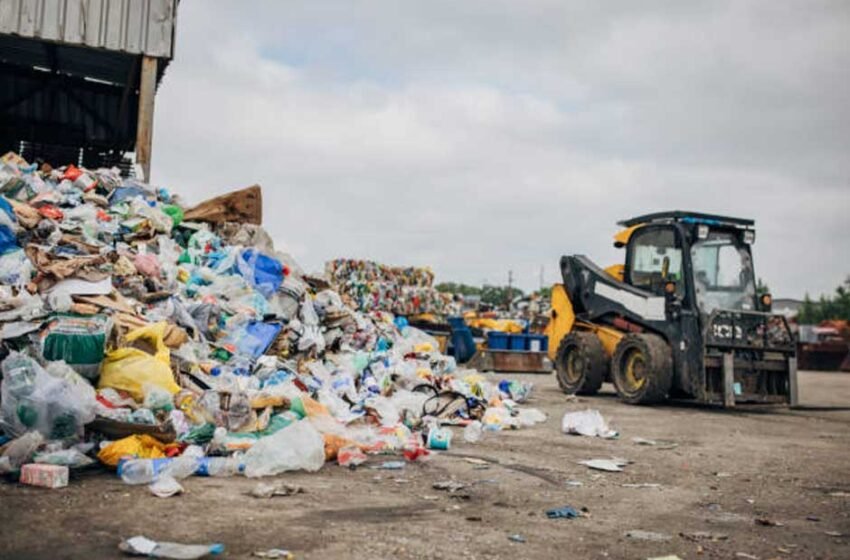Waste Management In 2025: Emerging Trends And Solutions

Everybody has thrown away things without thinking. An old phone with an empty coffee cup. Wastes in 2025 transcend mere trash. Solutions for this worldwide problem must be greener. Everything we toss results in carbon emissions and a dump overflow. The bright news is that Knowledge of the world is rising. People are recycling and reusing more, and consider carefully before tossing away. Cities are better at handling trash. Businesses create returnable, robust goods. Little actions like using a plastic cup or giving old tools might make a difference. Everyone has to cut waste; so, this is not simply your issue. Our handling of it now will determine the world of tomorrow. Get smart about trash and steer clear of turning the earth into a garbage landfill.
What Is Skip Hire Cheshire?
Renting a skip makes cleaning out your house, updating, or handling building waste simple. Select a skip size determined by your waste. The company brings the skip; you fill it, and they pick it up and correctly dispose of the garbage. Customers want Skip Hire Cheshire as it saves time, cleans, and properly disposes of waste. For many goods, recycling helps to lower landfill waste. It’s legal, safe, and environmentally friendly trash disposal.
Major Trends In Waste Management For 2025
By 2025 garbage management will have improved and grown greener. Metal, glass, and plastic are being used creatively as recycling and reuse rise. Still another advancement is smart waste technology. Artificial intelligence, applications, and sensors track trash cans and enhance pickup paths. Growing also is the circular economy, which lowers waste by producing goods that may be recycled or used again. To cut food waste, increasing numbers of homes and companies are composting organic waste. Governments and businesses are cutting or doing away with single-use plastics in order to improve the surroundings. At last, awareness and knowledge are becoming more vital as they enable people to make better waste judgements.
Environmental Sustainability & Circular Economy
The circular economy is different from the traditional manner of only utilising and disposal. Its aims include fixing, recycling, and renewing. Products may now be used again and survive longer. It cuts waste, saves energy, and cleans the surroundings. One may fix an outdated phone and recycle its components. Businesses are turning to recyclable, easily burning materials. Supporting a circular economy can help us protect the earth and create a smarter, more sustainable world for the next generations.
Innovations Reshaping The Industry
By 2025, new technologies will revolutionise environmental care and garbage management. Revolutionary are smart bins with sensors measuring fullness and providing collection signals. This accelerates trash pickup. Additionally, helping with trash disposal and recycling, artificial intelligence saves time and lowers mistakes. Still another creative concept is waste-to-energy technology. It either generates heat or electricity from trash. Increasingly biodegradable materials are employed. Consumers are choosing biodegradable goods over plastic. Nowadays, people can schedule skip rentals, check their recycling, and use phone apps to learn about environmentally responsible living. These technologies improve waste management and help to create a better future. New ideas speed up, improve, and clean the company.
Government Policies & Global Initiatives
Strong government policies and international projects are altering waste management by 2025. Many countries have prohibited plastic and tightly controlled recycling to lower pollution and protect the environment. Governments also help green companies. By contrast, the Sustainable Development Goals (SDGs) of the UN encourage less trash and cleaner cities. Programs like the EU Green Deal encourage long-term manufacturing to build a circular economy, recycle, and cut landfill waste. These guidelines streamline global waste collaboration. Public initiatives for education help to lower waste by encouraging recycling. All of these events show that waste elimination is a worldwide goal meant to better the planet.
Waste Management Challenges In 2025
Garbage management still has various problems in 2025, notwithstanding better technology and regulations. One main concern is more trash, mostly from food, technology, and packaging. In many areas, there are too few landfills and recycling facilities to handle trash, leading to issues. Reuse and recovery are further hampered at the source by illegal dumping and incorrect waste sorting. Some increasing communities lack infrastructure, hence trash finds its way to riversides or into the open. E-waste is increasing as outmoded computers, phones, and other devices are being discarded faster than they can be recovered.
Role Of Communities And People
People and communities assist in 2025 trash management. Many things would help the surroundings. Among examples are home recycling, reusable bags, and food trash burning. Purchasing less, mending things instead of throwing them away, and donating instead help to cut landfill waste. To increase awareness, towns are holding recycling drives, clean-up events, and training courses. Children and adults pick up trash sorting skills as well as the reasons behind their importance in local governments and schools. Thanks to social media and apps, sustainable practices might be quickly and broadly embraced.





